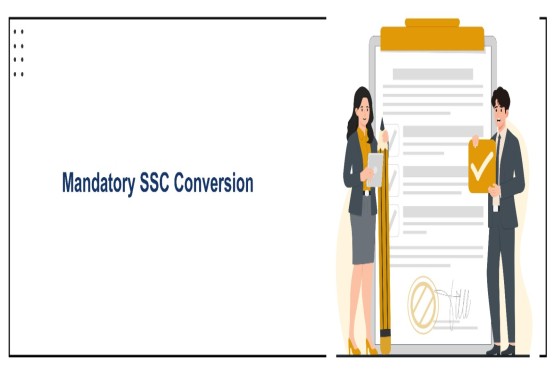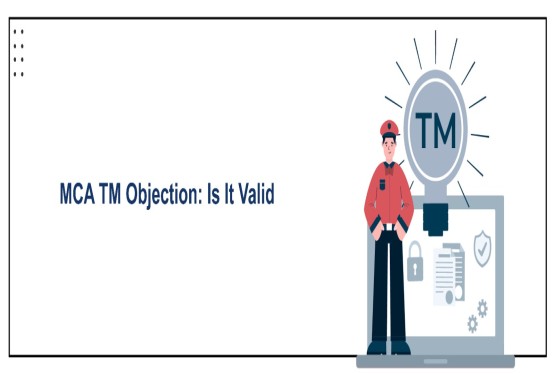Sexual harassment at the workplace is an issue that not only undermines the safety and dignity of individuals particularly women but also significantly disrupts the overall health, productivity, and morale of professional environments. Inappropriate behaviour, whether verbal, physical, or psychological, can create a hostile work atmosphere that discourages participation, hampers employee engagement, and negatively affects organizational reputation.Recognizing the urgent need to address this problem and ensure the protection of women in professional spaces, the Government of India enacted a dedicated legislation. The Sexual Harassment of Women at Workplace (Prevention, Prohibition and Redressal) Act, 2013, more commonly referred to as the POSH Act. This Act was introduced in alignment with the Supreme Court’s landmark Vishaka Guidelines (1997), which laid the foundation for legal protection against sexual harassment at work.The POSH Act is a progressive that seeks to prevent instances of sexual harassment, prohibit such conduct by enforcing penalties and guidelines, and provide a structured mechanism for the redressal of complaints. It is applicable to all workplaces across India spanning public and private sectors, educational institutions, NGOs, and even domestic households regardless of the size of the workforce.
Definition of Sexual Harassment
As per the POSH Act, sexual harassment is defined as any unwelcome act or behaviour of a sexual nature, whether direct or implied. This includes physical contact and advances, a demand or request for sexual Favors, making sexually coloured remarks, showing pornography, or any other unwelcome physical, verbal, or non-verbal conduct of a sexual nature. The Act also considers situations where there are explicit or implicit promises or threats related to employment benefits such as promotion, salary increase, or continued employment in exchange for sexual Favors. The emphasis is on the "unwelcome" nature of the act, which is determined from the perspective of the aggrieved woman, thereby placing the focus on the impact rather than the intent behind the behaviour.
Scope and Applicability
The scope and applicability of the POSH Act are broad and inclusive, ensuring protection for women across various types of workplaces. The Act is applicable to every organization in India with 10 or more employees, regardless of whether it belongs to the organized or unorganized sector. It covers not only permanent employees but also interns, apprentices, consultants, temporary, part-time, contractual, and daily wage workers. Furthermore, the Act extends its protection to domestic workers and even to women who are not directly employed by the organization but may be present at the workplace, such as clients, customers, or visitors. In essence, the POSH Act ensures that any woman, irrespective of her employment status or designation, is safeguarded against sexual harassment during the course of her work or while visiting a workplace.
Formation of Internal Committee (IC)
The formation of an Internal Committee (IC) is a mandatory requirement under the POSH Act for every employer with 10 or more employees. Each office, unit, or branch of the organization must have its own IC to ensure accessibility and timely redressal of complaints. The purpose of the IC is to serve as the primary body responsible for addressing complaints of sexual harassment in a fair, unbiased, and confidential manner.
-
The composition of the IC must include a Presiding Officer, who is a senior-level woman employee, along with at least two other employees who preferably have experience in legal matters, social work, or issues related to women.
-
Additionally, the IC must have one external member from an NGO or an individual with relevant experience in addressing sexual harassment issues. It is also essential that the committee maintains at least 50% women representation to ensure balanced and sensitive handling of cases.
Formation of Local Committee
The formation of a Local Committee (LC) is a crucial provision under the POSH Act to ensure that even individuals working in the smallest workplaces or in special situations have access to a formal mechanism for redressal of sexual harassment complaints. In cases where an organization has fewer than 10 employees, or when the complaint is made against the employer themselves, there may not be an Internal Committee in place. To address such situations, the Act mandates that the District Officer (DO) of every district must establish a Local Committee (LC) to hear and resolve complaints in a fair and impartial manner. This provision plays a vital role in protecting women working in informal sectors, domestic settings, or other small-scale establishments that may not have the infrastructure to set up an internal mechanism.
-
The LC must be set up in every district and should be accessible to women working in unorganized sectors, domestic work, and other informal employment settings.
-
The committee should be composed of a chairperson (a senior woman from the district), one member from NGOs or associations committed to women’s welfare, and representatives from government or local authorities, ensuring a balanced and credible redressal body.
Employee Awareness Training
Responsibilities of employers under the POSH Act is to promote a culture of awareness and sensitivity around the issue of sexual harassment through regular training and educational initiatives. The act mandates that organizations must take proactive steps to ensure that all employees- regardless to their role of designation are fully informed about their rights, responsibilities, and the procedure available for reporting and addressing complaints. This is not just a legal requirement but a foundational step in building a safe and respectful working environment.
-
Employer are required to organize workshops, training sessions and awareness program at regular intervals to sensitize employees on what constitutes sexual harassment, how to identify inappropriate behaviour, and the importance of respectful workplace conduct. These sessions should also cover the mechanism available for redressal and the role of by standers in preventing harassment.
-
It is essential to conduct orientation and capacity-building programs for members of the Internal Committee (IC) to ensure they are well equipped to handle complaints objectively, confidentially and in accordance with the principles of natural justice. This includes training in interviewing techniques, documentation, inquiry procedure, and understanding psychological aspects of harassment.
-
Lack of such awareness and training is among the most common areas of non-compliance, and it can seriously affect the outcome of an inquiry. Uninformed employees may fail to recognize or report harassment, while an untrained IC may mishandle sensitive complaints, leading to reputational and legal risks for the organization.
Complaint Mechanism and redressal procedure
The POSH Act lays down the time- bound process for filing, investigating and resolving complaints of sexual harassment to ensure fairness, accountability and prompt redressal. The procedure begins with the filing of a formal complaint and culminates in appropriate action based on the findings of the internal committee (IC).
-
Filing a complaint: Any aggrieved woman can file a written complaint of sexual harassment within three months of the date of incident. In the case of a series of incidents, the timeline starts from the last occurrence. The internal committee has the discretion to extend the timeline by an additional three months, provided the complainant can give a valid reason for the delay, such as trauma, fear or personal hardship. If the complainant is unable to submit the complaint in writing, the IC is responsible for assisting her in documenting it properly to ensure access to justice.
-
Inquiry Process: once a complaint is accepted, the IC is required to initiate a formal inquiry and complete it within 90 days from the date of receiving the complaint. Following the inquiry, a detailed report outlining the findings and recommendations must be submitted to the employer or the District Officer within 10 days of completing the investigation. Based on this report, the employer is legally bound to implement the recommended action whether disciplinary or corrective within 60 days, ensuring that justice is both timely and effective.
This structured complaint and inquiry mechanism helps maintain the integrity of the process, protect the rights of all parties involved and reinforce a culture of accountability and zero tolerance for harassment in the workplace.
Confidentiality Clause
Confidentiality is one of the important factors of the POSH Act and also important to ensuring that complainants, respondents, and witnesses feel safe and protected throughout the redressal process. The Act mandates that all details related to the complaint, inquiry proceedings, identities of the parties involved, and the outcome must be kept strictly confidential by the Internal Committee, the employer, and any other parties to the case.
-
Any breach of confidentiality, such as unauthorized disclosure of the names, documents, or findings of the inquiry, can attract a monetary penalty of Rs.5,000/-
-
Repeated, or intentional violations may lead to stricter penalties or disciplinary action under applicable laws or organizational policies.
Annual Report Filing
The POSH Act requires organizations to maintain transparency and accountability through Annual Report submissions. Every employer must ensure that their Internal Committee prepares and submits an Annual Report to the District Officer. This report must include details such as the number of complaints received, inquiries conducted, outcomes of those inquiries, and preventive actions taken by the organization.
-
Filing this report is not just a formality it is a critical compliance measure that demonstrates the employer’s commitment to maintaining a safe and respectful workplace.
-
Failure to submit the Annual Report may be viewed as non-compliance and could trigger scrutiny or penalties from local authorities.
Penalties for Non-Compliance
The POSH Act have the provisions related to strict penalties for employers and organizations that fail to comply with its provisions. Non-compliance includes failure to form an Internal Committee, not conducting inquiries properly, ignoring employee training, or neglecting to file the Annual Report.
-
The penalty for the first offence is Rs.50,000, and repeated violations can result in severe consequences such as the cancellation of business licenses or registration.
-
Additionally, individuals who are found guilty of suppressing complaints or misusing their position may also face civil or criminal liabilities, depending on the gravity of the misconduct. Organizations may also suffer reputational harm and loss of employee trust, which can impact overall productivity and workplace morale.
Role of Employers in Ensuring POSH Compliance
Under the POSH Act, employers have a central role in fostering a workplace that is free from sexual harassment and in ensuring strict compliance with the law. It is not only their legal obligation but also a moral responsibility to uphold the dignity, safety, and equality of all employees. One of the foremost duties of the employer is to create a safe, inclusive, and respectful working environment where employees can perform their duties without fear or discomfort. This involves addressing structural, cultural, and operational aspects of workplace behaviour and policy.Employers are required to display the organization’s POSH policy in prominent areas within the workplace such as notice boards, common areas, and digital portals, so that all employees are aware of their rights and the redressal mechanisms available to them. They must also ensure the timely constitution of a properly formed Internal Committee (IC) in every branch or office with more than 10 employees, and support its functioning by providing necessary training, resources, and independence. Additionally, employers must facilitate a fair, transparent, and unbiased inquiry process in case a complaint arises, ensuring confidentiality and adherence to the principles of natural justice. An equally important role is to protect the complainant from any form of retaliation, discrimination, or victimization during or after the inquiry process, thereby encouraging more employees to speak up against misconduct without fear.
Practices for POSH Compliance
organizations are encouraged to adopt best practices that align with the spirit of the POSH Act. One of the first and most important steps is to draft a complete and clearly worded POSH Policy that outlines definitions, procedures, responsibilities, and consequences. This policy should be made accessible to all employees via handbooks, emails, induction kits, and internal portals so they are fully aware of their rights and obligations.Organizations should also conduct periodic internal audits and compliance checks to evaluate the functioning of the Internal Committee, identify gaps, and implement improvements. Maintaining accurate and confidential records of all IC proceedings, trainings, and awareness programs is equally vital for internal governance and external accountability. Moreover, fostering a culture where employees are encouraged to intervene as bystanders and support victims or colleagues when inappropriate behaviour occurs can have a powerful impact on deterring harassment. Promoting mutual respect, gender sensitivity, and inclusivity through regular engagement and dialogue will help in creating a truly safe and supportive work environment.
-
Draft a clear POSH Policy and share it with all employees
-
Conduct periodic internal audits
-
Maintain accurate records of IC Proceedings
-
Encourage culture of respect.
Way forward
The way forward for POSH compliance is to move from just reacting to issues to actively preventing them. Following the POSH Act should not just be about meeting legal rules it should be a key part of how an organization cares for its employees. Employers need to promote respectful behaviour and gender sensitivity, regularly update policies, and provide training to all staff. Internal Committees should get the right support and training to handle complaints fairly and sensitively. Leadership involvement is also important when senior leaders are committed to a safe workplace, it sends a strong message to everyone. Organizations should also encourage employee feedback, support bystanders to speak up, and use tools like anonymous reporting systems. In the end, real compliance means more than just rules on paper it’s about creating a workplace where everyone feels safe, respected, and valued.











































































_crop10_thumb.jpg)


































































_crop10_thumb.jpg)
_crop10_thumb.jpg)



_crop10_thumb.jpg)


_crop10_thumb.jpg)





_crop10_thumb.jpg)

_crop10_thumb.jpg)














-suratgujarat-section-158_crop10_thumb.jpg)
-suratgujarat_crop10_thumb.jpg)
-(33)_crop10_thumb.jpg)



-ahmedabad_crop10_thumb.jpg)
-learn_crop10_thumb.jpg)

-learnn_crop10_thumb.jpg)



























































_crop10_thumb.jpg)























_Guidelines_learn_crop10_thumb.jpg)























_learn_crop10_thumb.jpg)
_crop10_thumb.jpeg)










_crop10_thumb.jpg)




_Second_Amendment_Rules,_2025_learn_crop10_thumb.jpg)







_learn_crop10_thumb.jpg)











































_learn_crop10_thumb.jpeg)























_learn_crop10_thumb.jpg)



_rd_roc_learn_crop10_thumb.jpg)
















_learn_crop10_thumb.jpg)














_learn_crop10_thumb.jpg)
_Learn_crop10_thumb.jpg)











































_learn_crop10_thumb.jpg)




_learn_crop10_thumb.jpg)













_crop10_thumb.jpeg)




















